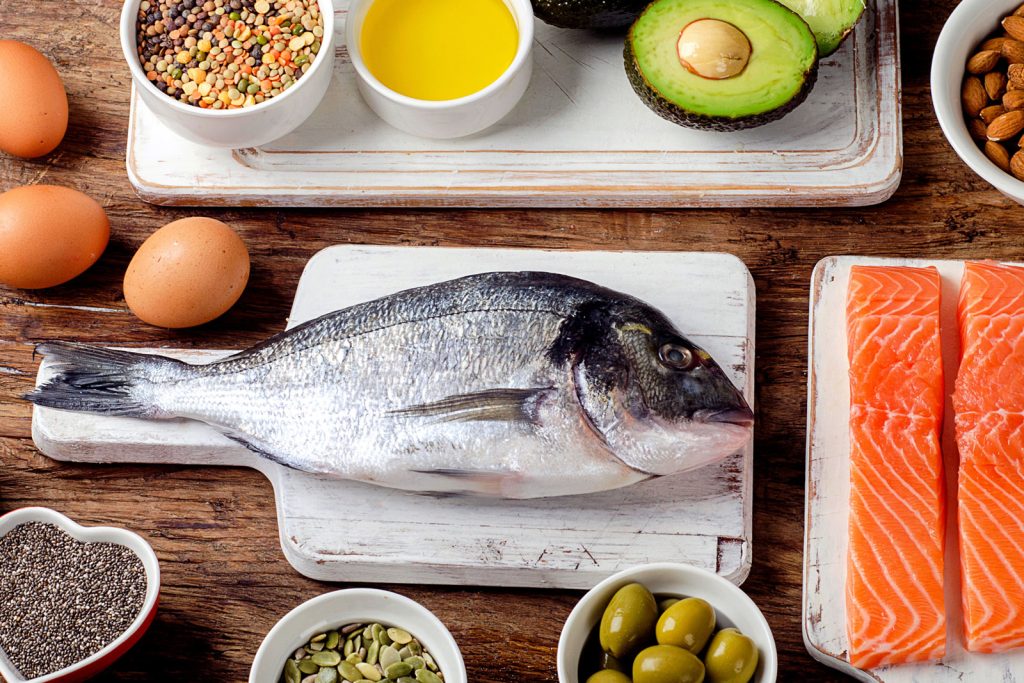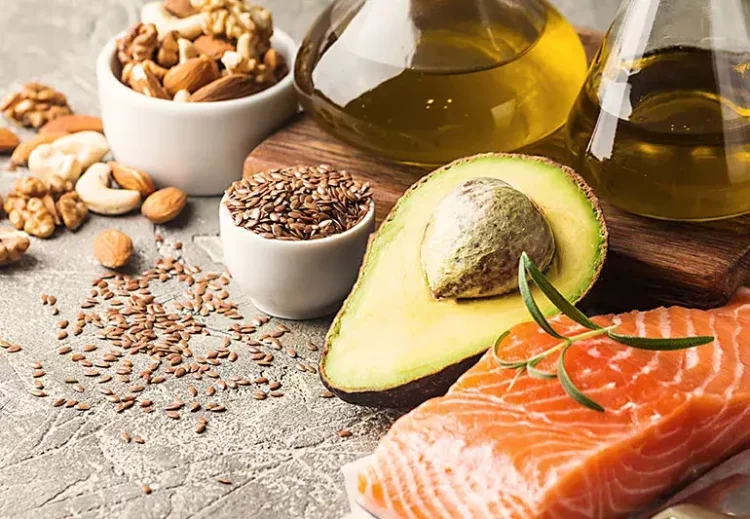Oral health isn’t just about brushing, flossing, and visiting the dentist regularly. The food you eat plays a critical role in determining the health of your teeth and gums. A nutrient-rich diet can prevent tooth sensitivity, protect against cavities, and reduce the risk of gum disease. On the other hand, a poor diet can contribute to dental issues like tooth decay, enamel erosion, and gum inflammation.
In this article, we’ll explore how dietary choices can improve your oral health, specifically focusing on preventing tooth sensitivity and cavities. Let’s dive into the foods and habits that can help you maintain a healthy smile.
1. The Link Between Diet and Oral Health
What you eat directly impacts the health of your teeth and gums. When you consume sugary and acidic foods, they can create an environment in your mouth that promotes tooth decay. Bacteria in the mouth feed on sugar, producing acids that erode enamel, leading to cavities and tooth sensitivity.
However, a diet rich in vitamins, minerals, and other essential nutrients can strengthen tooth enamel, promote gum health, and reduce the risks of cavities and sensitivity. Additionally, certain foods can help neutralize acids, remineralize enamel, and stimulate the production of saliva, which is essential for oral health.
2. Preventing Tooth Sensitivity Through Diet
What is Tooth Sensitivity?
Tooth sensitivity occurs when the protective enamel on your teeth wears down, exposing the underlying dentin, which contains nerve endings. This can lead to discomfort or sharp pain when consuming hot, cold, sweet, or acidic foods. The causes of tooth sensitivity include gum recession, enamel erosion from acidic foods or beverages, and tooth decay.
Dietary Strategies to Prevent Tooth Sensitivity:
A. Choose Foods that Strengthen Enamel
- Calcium-rich foods: Calcium is vital for strong teeth and bones, and it helps to remineralize weakened enamel. Dairy products like milk, cheese, and yogurt are excellent sources of calcium.
- Tip: Add more dairy to your diet to fortify tooth enamel and reduce sensitivity.
- Vitamin D: This nutrient helps your body absorb calcium more effectively, making it an essential component in preventing tooth sensitivity.
- Best Sources: Fatty fish (like salmon and mackerel), fortified foods (such as fortified milk or cereals), and egg yolks.
- Phosphorus: Phosphorus works in tandem with calcium to rebuild enamel and support tooth health.
- Best Sources: Meat, poultry, fish, eggs, nuts, and seeds.
B. Incorporate Foods that Reduce Enamel Erosion
- Crunchy fruits and vegetables: Apples, carrots, and celery stimulate saliva production, which helps neutralize acids and wash away food particles. These foods also provide a mild abrasive action that can help scrub plaque from your teeth.
- Nuts and seeds: Almonds, walnuts, and sunflower seeds are great sources of healthy fats and minerals like calcium and phosphorus, which help strengthen your enamel.
- Green tea: Green tea contains catechins, which have antioxidant and anti-inflammatory properties. It also helps reduce bacteria in the mouth, lowering the risk of plaque buildup and enamel erosion.
C. Avoid Acidic and Sugary Foods
- Citrus fruits: While healthy, acidic fruits like lemons, oranges, and grapefruits can contribute to enamel erosion if consumed excessively.
- Tip: Rinse your mouth with water after consuming citrus fruits to help neutralize the acid and protect your enamel.
- Sodas and sports drinks: These are high in both sugar and acid, which can significantly contribute to enamel wear and tooth sensitivity.
- Tip: Opt for water or unsweetened beverages to minimize enamel erosion.
3. Preventing Cavities Through Diet
What Are Cavities?
Cavities (also known as dental caries) are caused by the gradual breakdown of tooth enamel, usually due to the prolonged exposure to plaque, acids, and sugars. When bacteria in the mouth feed on sugar, they produce acids that demineralize enamel and cause decay.
Dietary Strategies to Prevent Cavities:
A. Limit Sugar and Refined Carbohydrates
- Sugar consumption: Sugary foods and beverages, including candies, cakes, cookies, and sugary drinks, are the primary culprits in cavity formation. The bacteria in your mouth thrive on sugar and produce acid that erodes tooth enamel.
- Tip: Limit your intake of sugary snacks and drinks, and opt for healthier alternatives like fruits or unsweetened snacks.
- Refined carbohydrates: White bread, pasta, and chips are high in refined carbohydrates, which break down into sugars in the mouth and promote bacterial growth.
- Tip: Choose whole grains, as they’re less likely to contribute to plaque buildup.
B. Increase Intake of Foods That Remineralize Teeth
- Cheese: Cheese is rich in calcium and phosphates, which help remineralize teeth and reduce the risk of cavities. Additionally, cheese stimulates saliva production, which helps wash away food particles.
- Yogurt: Rich in probiotics, yogurt helps maintain a healthy balance of bacteria in your mouth, preventing harmful bacteria from causing plaque buildup.
- Leafy greens: Vegetables like spinach and kale are packed with calcium and other nutrients that help remineralize teeth and promote overall oral health.
C. Drink Water to Rinse Away Acids
- Water: Drinking plenty of water throughout the day helps rinse away food particles, neutralize acids, and maintain a healthy pH balance in your mouth. This prevents the harmful acids from eroding enamel and causing cavities.
- Tip: Drinking water after meals can help wash away sugars and acids, reducing the risk of cavities.
D. Use Sugar-Free Gum to Protect Teeth
- Sugar-free gum: Chewing gum increases saliva production, which helps neutralize acids and remineralize enamel. Look for gum that contains xylitol, a natural sweetener that has been shown to reduce cavity-causing bacteria.
- Tip: Chew sugar-free gum after meals to reduce the risk of cavities and promote oral health.

4. Nutrients to Support Gum Health
Healthy gums are essential for preventing tooth sensitivity and cavities. Diet plays a significant role in maintaining healthy gums by reducing inflammation and promoting healing.
Nutrients for Healthy Gums:
- Vitamin C: Vitamin C helps maintain healthy gum tissue and prevents gum disease (gingivitis). It also promotes the healing of damaged tissues and reduces gum inflammation.
- Best Sources: Citrus fruits, strawberries, bell peppers, and broccoli.
- Omega-3 fatty acids: These healthy fats have anti-inflammatory properties that can help reduce gum inflammation and protect against periodontal disease.
- Best Sources: Fatty fish (like salmon, sardines, and mackerel), flaxseeds, and chia seeds.
5. General Dietary Tips for Optimal Oral Health
- Eat a balanced diet: A varied, nutrient-rich diet that includes a combination of proteins, healthy fats, fruits, vegetables, and whole grains will support overall oral health.
- Avoid frequent snacking: Frequent snacking, especially on sugary foods, increases the chances of plaque buildup and tooth decay. If you need a snack, opt for healthy options like vegetables, nuts, or cheese.
- Stay hydrated: Water is crucial for maintaining a healthy mouth, as it helps wash away food particles, bacteria, and acids that can damage your teeth.
- Use a straw: When drinking acidic beverages (like soda or citrus juice), use a straw to reduce the contact of the liquid with your teeth.
Conclusion: Nourish Your Teeth for Better Health
The key to preventing tooth sensitivity and cavities lies in making smart dietary choices. By incorporating foods rich in calcium, vitamin D, phosphorus, vitamin C, and fiber, you can strengthen your enamel, reduce the risk of decay, and promote healthy gums. Limiting sugary, acidic, and refined foods is equally important in protecting your oral health.
Remember, your diet is a powerful tool in the fight against tooth sensitivity and cavities. By nourishing your teeth with the right nutrients and avoiding harmful foods, you can enjoy a lifetime of healthy, strong teeth and gums.













































Discussion about this post